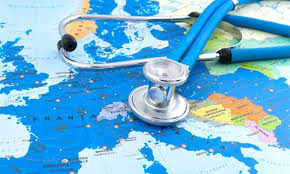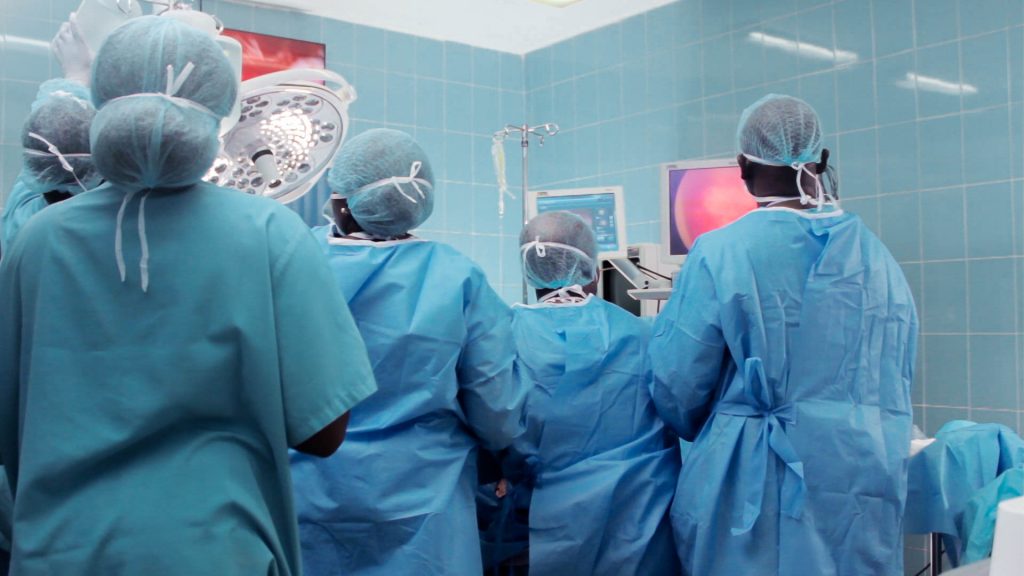
Nigerians are reported to be among the world’s most notable medical tourists, with tens of thousands travelling in search of medical services. Reports also show that Nigeria loses about US$1 billion every year to medical tourism. Wouldn’t you agree that this is a whopping loss for the economy?

Medical tourism is thriving in destination countries like the USA, Europe, Middle East and Asian countries particularly India. Interestingly, India wasn’t a destination for health-care before perhaps the 2000’s, and now, a large number of Nigerians, Russians, Britons, Americans and other Asian nationals travel to India for treatments ranging from orthopaedic surgeries to transplant surgeries. With ease of travel policy (visa application and grant), absence of a language barrier, advanced medical technologies & infrastructure and the competitive cost of medical care, where patients can access treatment from accredited facilities that are at par with developed countries and are in compliance with international quality standards, it is no surprise that India has fast become a hub of medical tourism with huge economic benefits for the country both in terms of revenue and employment opportunities. The hospital industry in India was reported to have hit about US$61 billion in 2017 and is projected to increase in the coming years.
Now, India is like Nigeria in many regards, with similarities in population density and positioning as a developing country evidenced by several dismal global development indicators. So, the question is, can we look into the possibility of Nigeria becoming a healthcare destination country as opposed to the deluge export of Nigerians to other countries for medical care?
Nigeria has made remarkable advancement in modern medicine strides. We have a number of hospitals in the country that are equipped with cutting edge technology and skilled know-how in undertaking high-risk, major, minor and even non-invasive medical procedures.

Take for example, Kelina Hospital in Abuja, Nigeria, a medical institution that has the Lumenis Moses technology machine, the first of its kind both in Africa and in Nigeria to conduct laser surgical procedures. This tells us that there really is no basis for the legendary penchant of our leaders and prominent individuals for foreign medical care.
How Can We Position Nigeria As A Healthcare Destination?
Appreciation For Our Healthcare Institutions
The answer to this question lies in deliberately changing the narrative of healthcare in the country. We need to actively cultivate a sense of appreciation for our healthcare institutions, phasing out poor quality care standards. I interacted with a medical professional who is passionate about healthcare and bringing the best into Nigeria by investing in his professional development. He noted that on his last trip he realized that as opposed to a couple of years before, many Nigerian doctors are actively equipping themselves with global standard medical knowledge and keeping abreast with trends by attending international conferences. It goes to show that there is a pervading inclination in the medical community for improvement. The Nigerian Medical and Dental Council (MDCN) organizes an annual medical exhibition where hospitals come and showcase their work and the progress they are making in the medical world.
So, we need to patronize our Nigerian healthcare institutions.
Hospitals Need To Make A Concerted Effort To Sell Value Proposition & Their Potential.
The attendant challenge of this strategy is the fact that there are restrictions by medical governing bodies. If you look at the Nigerian Medical Ethical Conduct Guide of the MDCN, there are a number of restrictions on hospitals, they are not allowed to advertise their services.
While we await the overdue review of the advertisement ban to favour health facilities marking measurable progress and increase the spread of clinical management knowledge for patients and physicians alike, I feel there are a couple of approaches hospitals can adopt in selling the services they render;
- One is building a very strong brand. From their website and internal/external communications, they should build a strong brand that articulates who they are, what they are about, that communicates trust throughout their processes and sell this brand to Nigerians. This includes creating and disseminating content regularly that informs Nigerians about the value they can provide via a medium that does not contravene the existing rules.
- Hospitals need to have a patient liaison representative who ensures that inquiries, requests and concerns are appropriately addressed to ensure a continuum of improved and satisfactory care. This will also serve as a point of contact for patients, their families and their caregivers, as well as provide a link between patients and a diverse range of support both within and outside the hospital.
- In addition, having a very strong, adaptable sales strategy will serve to promote their value. Hospitals can devise payment plans that accommodates varying income brackets. Like any other product, the consumer would be inclined to go for the most cost-effective product without compromising standard or value. Partnering with insurance organizations(HMOs) can also help with providing alternative options for covering the cost of emergency or capital-intensive care for patients.
Strong Partnership Between The Government & Private Sector
From policy design and implementation to infrastructural development to the education aspect, there needs to be a formidable collaboration between the public and private sectors in order to strengthen the health sector and fix the holes in our health institutions. This partnership needs to cut across the public healthcare system comprising; general hospitals, tertiary institution hospitals, primary health care centres (PHCs) in the rural areas, the private healthcare organizations and investors or entrepreneurs who can drive international and local investment and development in the sector.
We also need to evaluate the quality of doctors we are producing in our educational institutions as it contributes significantly to the incidence of poor, substandard medical care. What checks do we introduce to ensure our doctors are vetted comprehensively and deemed eligible to practice medicine? How can both sectors work together to cut down on brain drain? The government introduce rewarding work conditions for doctors to reduce burn-out, strike actions and the resultant brain drain. There is a need for a concerted strategy from the government to keep homegrown talent.
In addition, we need to develop policies or laws that help to ensure that the government itself actually patronizes our healthcare sector. This is highly productive in the sense that it places the pressure on the government to actually drive increased development in the healthcare sector and support the provision of standardized healthcare services in Nigerian hospitals. When we have this working partnership between the public and private institutions, medical facilities will inevitably be established and strengthened that can provide both exclusive, high-cost care as well as standardized free or low-cost healthcare especially for the poor, disaster or insurgency victims and persons living in the rural areas. It is imperative that the government devices sustainable mechanisms to ensure universal access to health care regardless of socioeconomic status.
We also need to curb corruption. Not too long ago, we had a case of misappropriation of huge funds allocated for infrastructure upgrade at The National Hospital in Abuja.
Opportunities For Innovation
The healthcare system needs to push for the introduction of initiatives that open up the sector for innovation and promote development. When we start thinking of enabling medicare startups, this will take us a long way. From medical equipment or technology innovation to clinical trials to telemedicine, there is a world of opportunity for innovation and economic development to thrive. Even health insurance can find a place in the health sector market to provide innovative insurance packages that facilitate access to quality healthcare for Nigerians. Already, a number of digital health startups like NEWMED, DoctorNow, Flying Doctors Nigeria, SaferMom, Lifebank etc. are already taking steps in that direction, bringing the doctor to the people across demographics ranging from moms to the elderly to emergency care to pharmaceutical needs to blood work and even to geriatric care.
The health sector affects us all and so, if Nigeria can borrow a leaf from India and, I believe she can be positioned as a healthcare destination in the world which will ultimately increase revenue, boost economic development and reduce our dependence on oil.
What do you think?
Learn more about what we can do for your venture
Click on a relevant category below.
Businesses
Click here
Non-Profits or Institutions
Click here
Individuals
Click here
Aspirants
Click here






